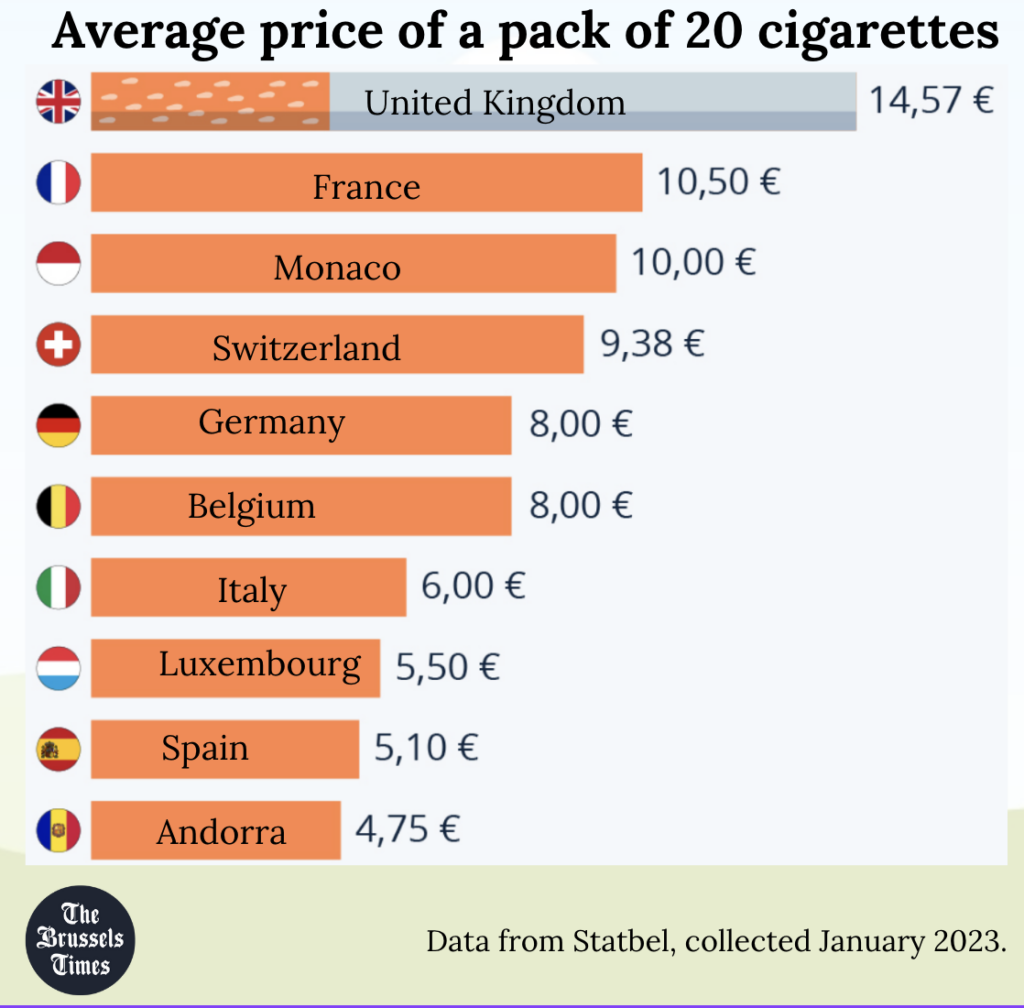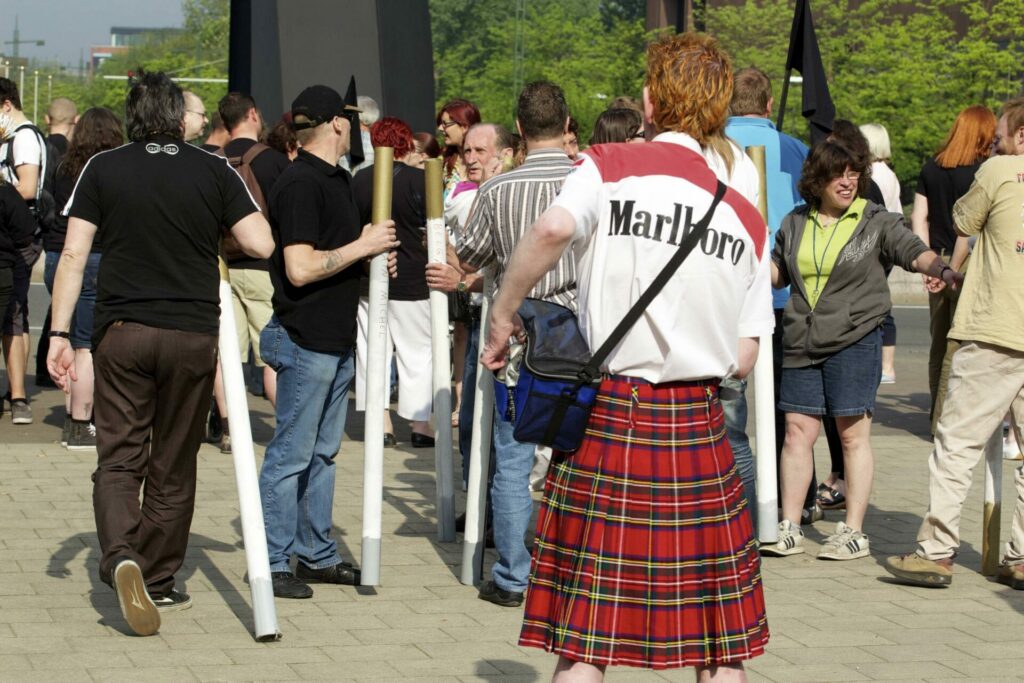In a move that aims to step up Belgium's battle against smoking, Health Minister Frank Vandenbroucke announced on Tuesday a series of measures that will curtail tobacco companies and ban outright the display of tobacco products.
The national Cancer Foundation reports that almost a quarter (24%) of Belgians smoke, of which one in five (19%) smoke daily. At the same time, 14,000 people die in Belgium each year from smoking-related illnesses whilst there are 300,000 who suffer.
To discourage smoking the Federal Government had already announced plans to increase the excise taxes on tobacco products, which had previously been estimated to raise the cost of a pack of 20 cigarettes by €1 whilst at the same time generating an extra €50 million per year in tax revenue.
However Tuesday's decision goes further in clamping down on the sector, as it also reduces the points of sale – cigarettes will no longer be available to purchase at large supermarkets (bigger than 400 m2) or festivals – whilst restricting the public spaces where smoking is permitted. The new regulations will come into effect on 1 January 2025.
With a view to achieving a "smoke-free generation", Vandenbroucke justified the move as an effort to raise the barriers and prevent the tobacco lobby from marketing products. To enforce the new laws the government will carry out widespread controls with heavy penalties – such as forced closure – for those that do not comply.
Missing the mark
The measures follow research by Sciensano which shows that Belgium is on track to miss its own objectives. The government wants to reduce daily tobacco use to 10% of the population by 2028 and to 5% by 2040 – ambitions that Sciensano predicted would be far overshot.
In fact, the public health institute found that at the current rate, Belgium's 2028 targets would not be fully achieved even by 2040. Whilst the planned price hikes will make tobacco products even more expensive than in some neighbouring countries, they will remain cheaper than in France, likely meaning that many French smokers will continue crossing the border for the advantageous prices.
Yet Belgium's commerce federation Comeos branded the tougher measures "pure hypocrisy". Notably, they argue that the new rules will require those selling tobacco to have a separate room or to keep the products hidden in a drawer. Bars, cafés and hotels (Horeca) however will be permitted to continue selling tobacco products.
For its part, the multinational tobacco giant Philip Morris deplored the changes, asserting that the Federal Government is "getting rich off the back of smokers" and insisting that the measures will encourage the black market. A study carried out in 2022 by the Belgian-Luxembourg Federation of Cigarette Manufacturers estimated that one in five cigarettes in Belgium is untaxed – ie. purchased on the black market.
Belgium is a known hub for counterfeit cigarettes, with production sites not uncommon. Not only do these products escape tax controls, they also circumvent health checks and risk containing even more toxic contaminants. But most studies into this phenomenon have been funded by major tobacco producers.

